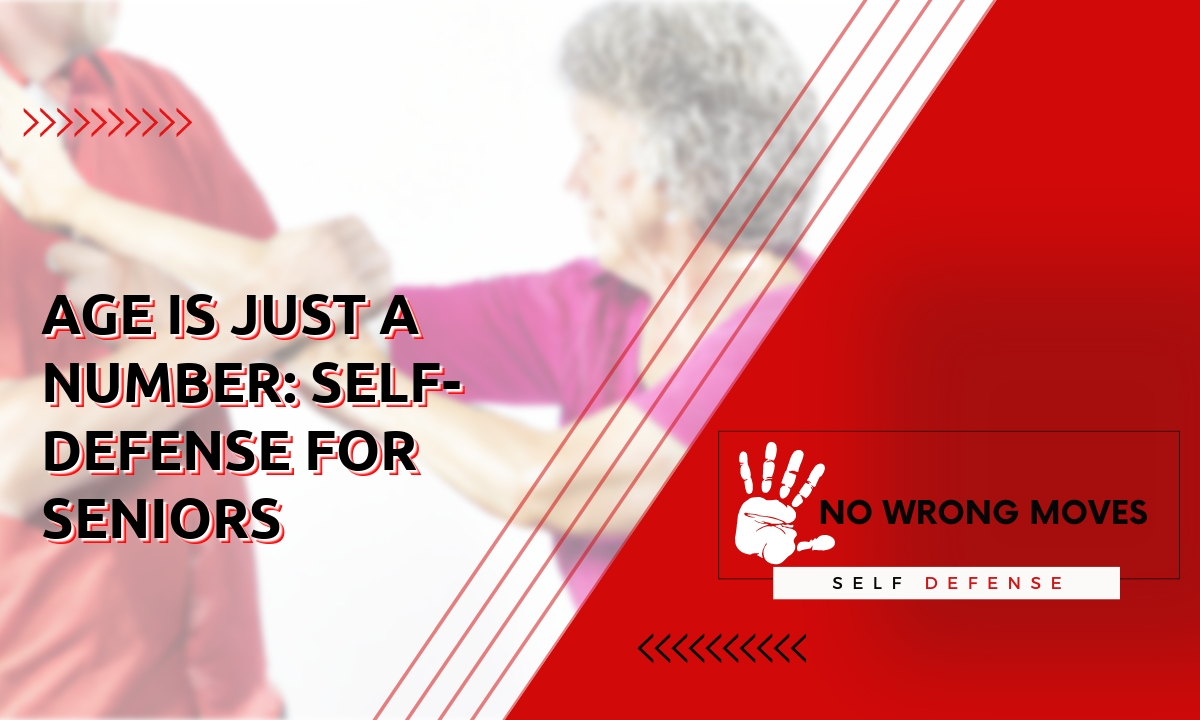
We often think of self-defense as something only young and fit people can do, that the elderly must be reliant on them for their own protection.
But the reality of it all is that self-defense is just as important, if not more so, for older adults.
As we age, our risk of being targeted by criminals increases--and not just from online scams by criminals, but active physical violence in public places.
In this article, we'll be exploring the importance of elderly self-defense classes, all the while tackling other measures that can help protect seniors from harm.
Elderly Self-Defense Classes
Many martial arts schools offer specialized senior classes designed to teach elderly individuals how to defend themselves against attackers.
These classes are often tailored specifically towards the needs of older adults with various levels of mobility and strength.
Martial arts provide an excellent form of exercise while also teaching skills such as balance, coordination, and agility that may become increasingly important with age.
These classes can even provide social benefits. Many find their peers in class to be encouraging and supportive during challenging times, like recovery from injury or illness.
Personal Safety for Seniors

In addition to taking a martial arts class regularly, there are plenty of steps seniors can take while in their own at home or when out in public to ensure their personal safety.
For instance, installing extra locks on doors or windows will provide some much-needed added security at home. Carrying pepper spray when walking around town is also great for providing protection against potential attackers, especially when in unfamiliar surroundings.
It’s also important that seniors stay alert when shopping online. Scammers target the elderly frequently due to their perceived naivety about technology, so it’s essential they remain vigilant whenever making purchases through apps or websites.
Defending Against Elder Abuse

Unfortunately, elder abuse is still rampant throughout many societies today. According to estimates by the National Center on Elder Abuse (NCEA), up to 10% of all elders experience some form of abuse annually.
That's why it’s vital for friends and family members who live far away from aging loved ones to check up on them periodically via phone calls or video chats; this way you can make sure your relative isn't experiencing any kind of mistreatment without actually being physically present near them.
Thankfully, there are numerous organizations that specialize in providing assistance services, such as resource-related legal advice, financial management support, among others, should anything occur unexpectedly.
Avoiding Scams Targeting Seniors

Scammers use deceptive tactics aimed at fooling unsuspecting victims into giving away sensitive information, either over the phone or through emails sent directly into one's inbox.
This kind of scam makes perfect sense given that most elderly individuals don't always have the tech-savvy knowledge required to recognize them. Newer technologies are often hard enough to keep up with for younger people who use them often; how much more older people who don't?
This makes them especially vulnerable targets. So to protect yourself, always hang up if someone calls asking for personal information, like your Social Security numbers or your credit card details. Never give out passwords or PIN codes under any circumstances either!
When it comes to email scams, look for suspicious links within messages before clicking. Oftentimes, simply hovering your mouse cursor over a link will show you where it's really going to bring you.
Protecting Yourself In Public Places As A Senior Citizen

When visiting unfamiliar locales alone, it's smart practice to carry small items, like keys or your purse, tightly close to you. You never know who may be lurking around the corner, especially in late hours.
Try and move with a group to mitigate your chances of being targeted by anyone with ill intentions. Traveling together is far safer than traveling alone, after all!
Also try memorizing the license plate number of any car belonging to anyone who's providing you your transportation services, just in case the worst happens and you need to report something to the authorities.
Lastly, keep your cellphone charged and your emergency contacts up-to-date. Try updating them at least once a month, and dial 911 immediately if an incident that requires a quick response occurs.
Preventing Physical Violence Against The Elderly

Seniors must know how to defend themselves against physical threats, especially those seniors living independent lives.
Avoid confrontation by simply walking in the opposite direction. When a confrontational situation, instead of wasting energy proving your point to your opponent, just walk away. Remember, it's far better to be safe than sorry!
If conflict is unavoidable though, employ strategies meant to distract your attackers long enough for you to escape danger. Also remember to yell as loud as possible when necessary, so that you can garner attention from passersby.
And finally, see if you can carry a whistle keychain with you, in case you need to alert police presence in the area. Whistles are designed to be louder than human voices, which makes them an ideal tool for warding off ambient dangers lurking around the corner.
[author-box-jpx-fitness]
